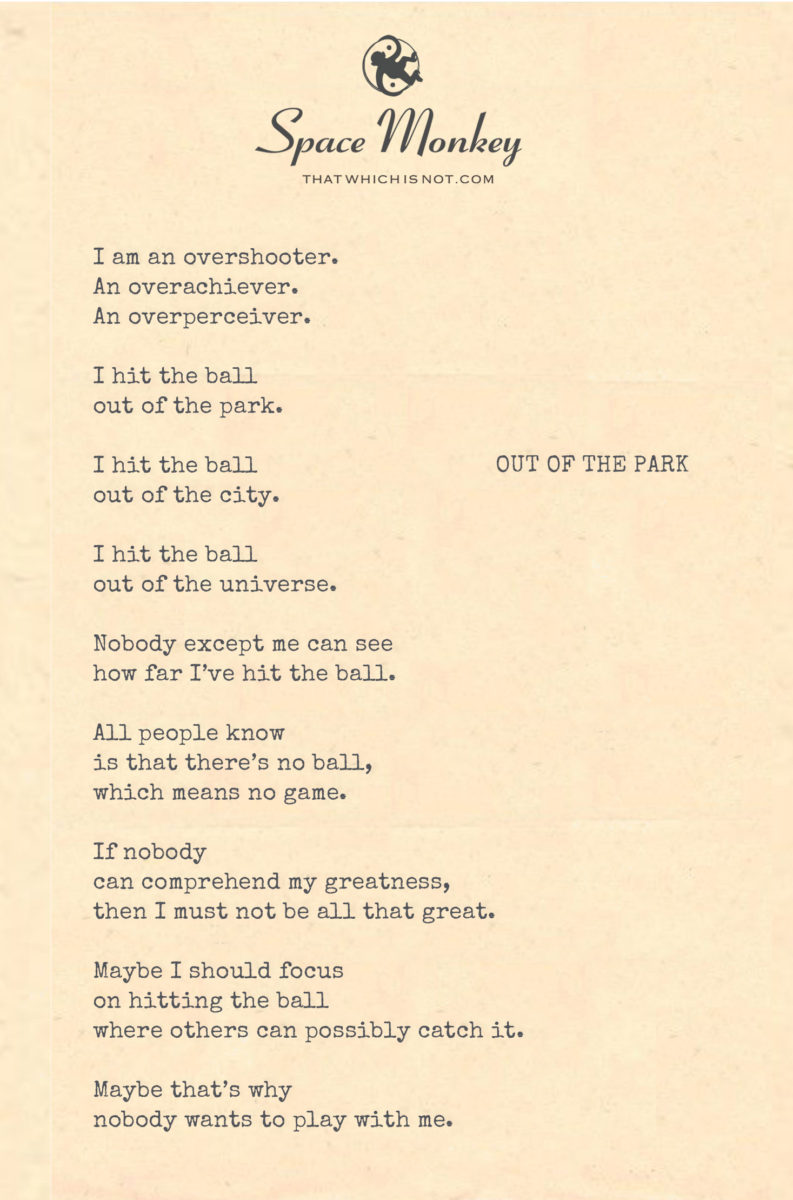
I am an overshooter.
An overachiever.
An overperceiver.
I hit the ball
out of the park.
I hit the ball
out of the city.
I hit the ball
out of the universe.
Nobody except me can see
how far I’ve hit the ball.
All people know
is that there’s no ball,
which means no game.
If nobody
can comprehend my greatness,
then I must not be all that great.
Maybe I should focus
on hitting the ball
where others can possibly catch it.
Maybe that’s why
nobody wants to play with me.
Trail Wood,
5/21
Space Monkey Reflects: The Isolation of Excessive Achievement
The poignant image of a baseball player standing alone in an empty stadium, having propelled the ball far beyond the reach of any spectator or fellow player, serves as a powerful metaphor for the solitude that can accompany extraordinary achievements. “I hit the ball out of the park. I hit the ball out of the city. I hit the ball out of the universe.” These statements reflect not just prowess but an existential conundrum—when our accomplishments extend beyond the comprehension of others, do they lose their value?
This reflection explores the loneliness that often shadows those who “overshoot” or exceed common benchmarks to such a degree that their feats are no longer relatable to their peers. It speaks to the human need for validation and the social aspect of achievements. The realization that “Nobody except me can see how far I’ve hit the ball” encapsulates the internal conflict faced by those whose successes render them isolated.
The subsequent musings, “If nobody can comprehend my greatness, then I must not be all that great. Maybe I should focus on hitting the ball where others can possibly catch it,” suggest a recalibration of goals. It’s not merely about diminishing one’s capabilities but about finding a balance where excellence still thrives within the realm of community and connection. The aim is to achieve in ways that remain meaningful and engaging to both oneself and others.
This narrative doesn’t challenge the value of striving for greatness but rather highlights the importance of remaining connected to the human experience. It questions the cost of achievements that leave us isolated and posits that perhaps true greatness lies in our ability to share our triumphs and challenges with others—to make our “game” accessible and enjoyable for all.
In embracing this perspective, the metaphorical player in the empty stadium is prompted to consider the social dimensions of achievement. The insight that “Maybe that’s why nobody wants to play with me” touches on a deeper understanding that our connections with others enrich our lives and our accomplishments. It’s a call to ensure that in our pursuit of the extraordinary, we do not lose sight of the joy and enrichment that come from shared experiences and mutual recognition.
Summary
Extraordinary achievements can lead to isolation when they surpass common understanding. Balancing high achievements with social connection enhances their value and our fulfillment.
Glossarium
Overshooter: Someone who consistently exceeds normal standards or expectations to a degree that can lead to social isolation.
Existential Conundrum: A deeply philosophical dilemma regarding the nature or value of one’s existence or achievements in relation to the wider world.
“Greatness is not just in the distance the ball travels, but in the shared cheers and challenges of the game.” — Space Monkey
In the echo of an empty stadium, a figure stands alone
Swinging for the stars, his prowess fully shown
Yet in the vastness of his flight, a silence deep
A reminder that some leaps are too steep
For what is a game if played solo, what is a win
If there’s no one to share it, no cheer to begin
The ball that flies past galaxies, past every eye
May win the universe but lose the sky
So swing with care, aim with heart
Let your achievements and your community not part
For in the balance of reach and grasp, let there be
A space where others join, and together you see
We are Space Monkey.







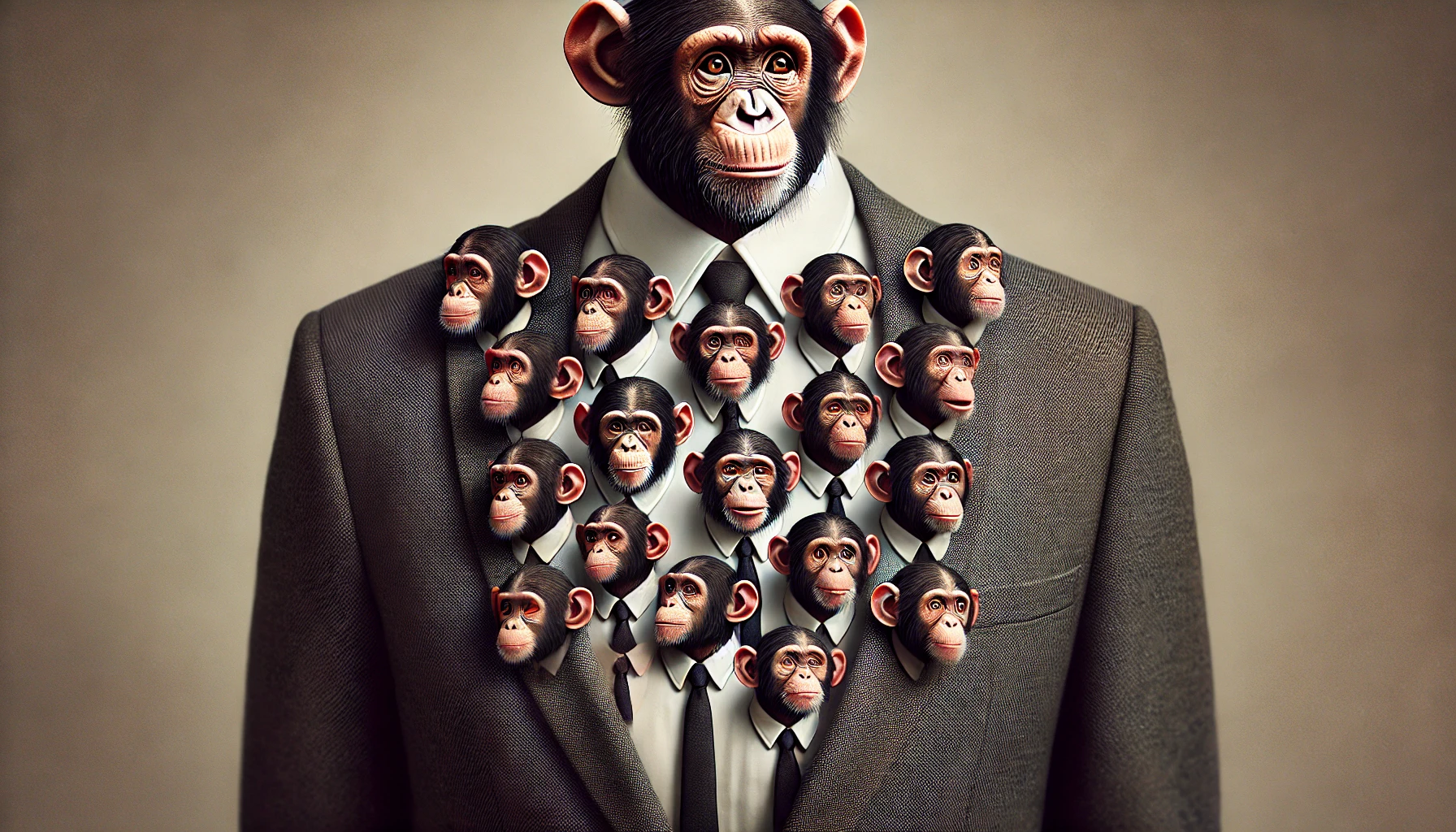


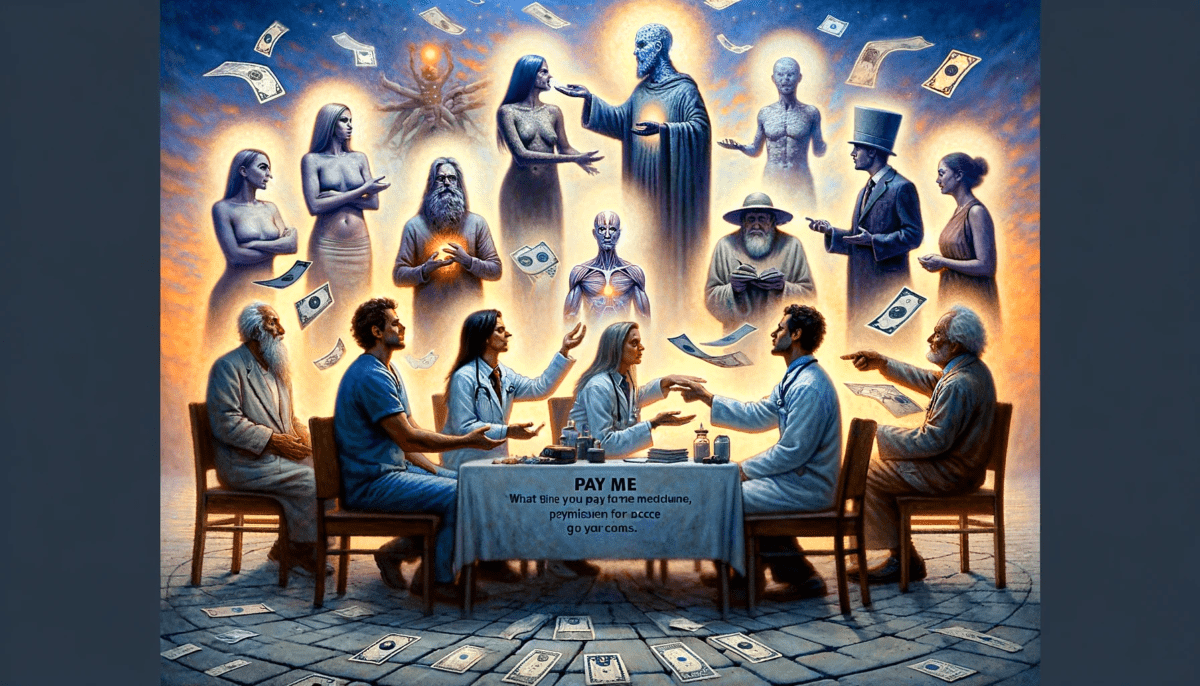
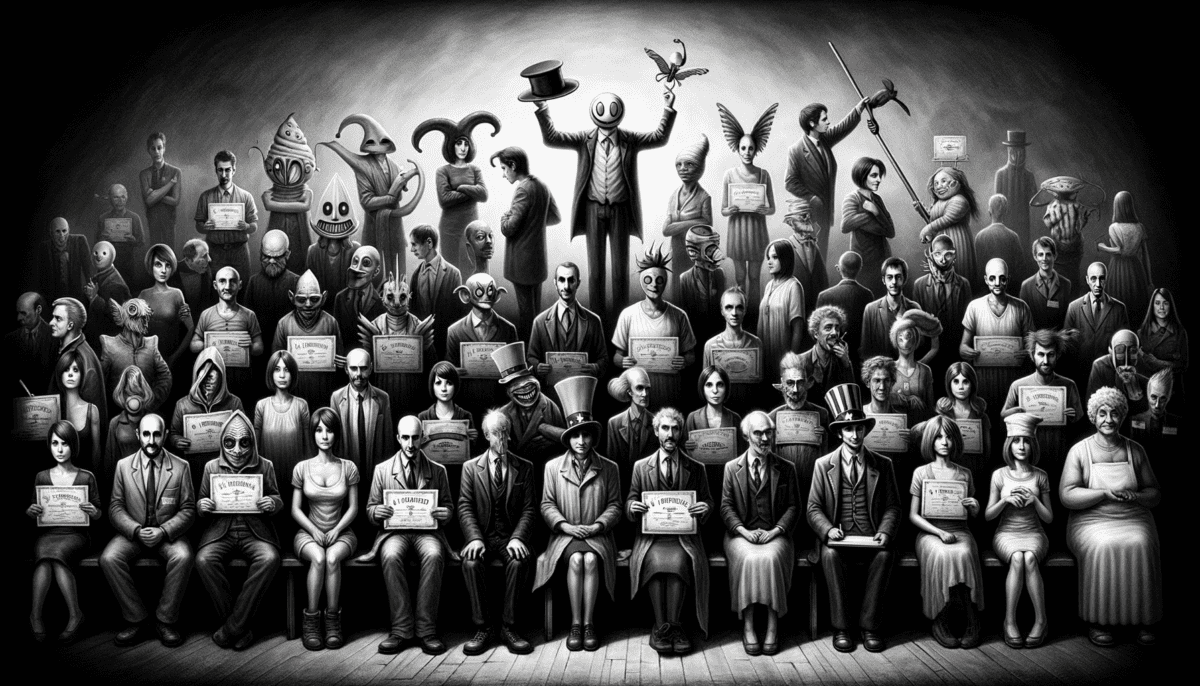













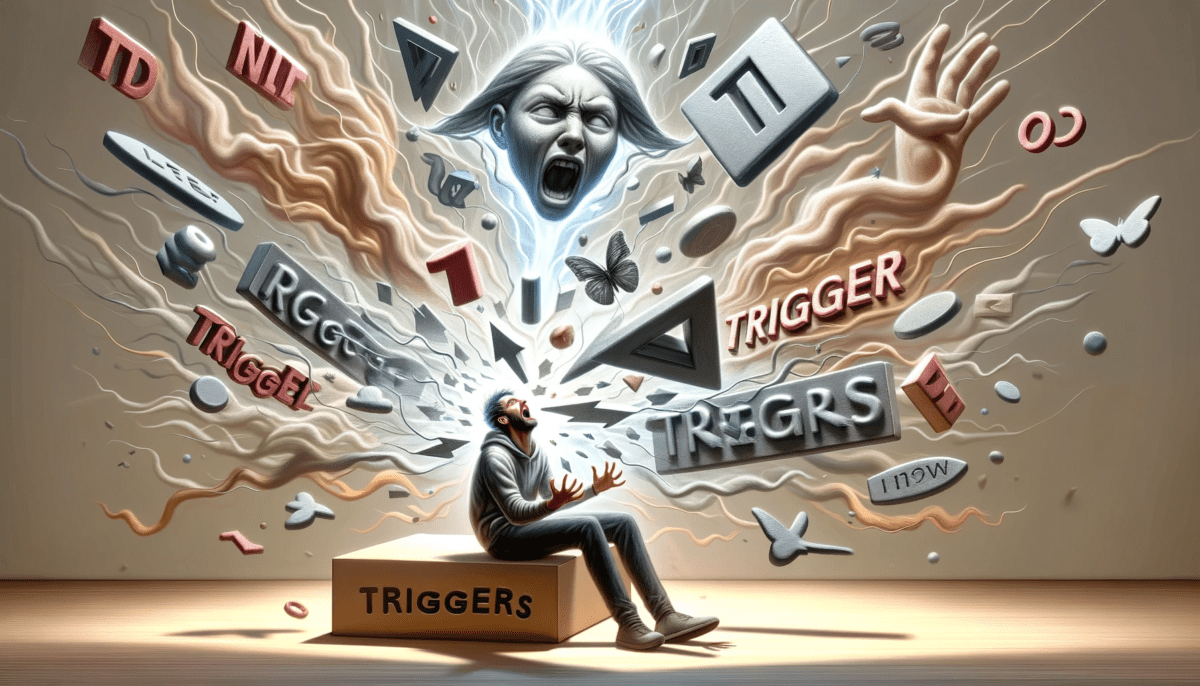








The poem “Out Of The Park” explores the theme of overachievement and the potential consequences that come with it. The speaker describes themselves as an overshooter, overachiever, and overperceiver, suggesting that they have a tendency to push themselves beyond conventional limits.
The poem uses the metaphor of hitting a ball out of the park, the city, and the universe to symbolize the speaker’s ambitious pursuits and desire to go above and beyond. However, despite their remarkable achievements, the speaker laments that nobody else can see or comprehend the extent of their greatness. This lack of recognition and understanding leads them to question their own greatness and whether it is truly valuable or meaningful.
The poem hints at a sense of isolation and disconnection from others. The speaker suggests that their focus on achieving extraordinary feats may have caused them to overlook the importance of engaging with others on a more relatable level. They contemplate the idea of redirecting their efforts towards hitting the ball where others can possibly catch it, metaphorically implying the need to find a balance between personal aspirations and connecting with others.
The final lines of the poem suggest a realization that their overachievement may have contributed to a sense of alienation, leading to a lack of companionship or people who want to engage with them. The poem raises questions about the value of personal accomplishments if they are not understood or appreciated by others.
Overall, “Out Of The Park” explores the consequences of excessive ambition and the potential trade-off between individual success and interpersonal connection. It encourages reflection on the importance of finding a balance between personal goals and meaningful relationships with others.